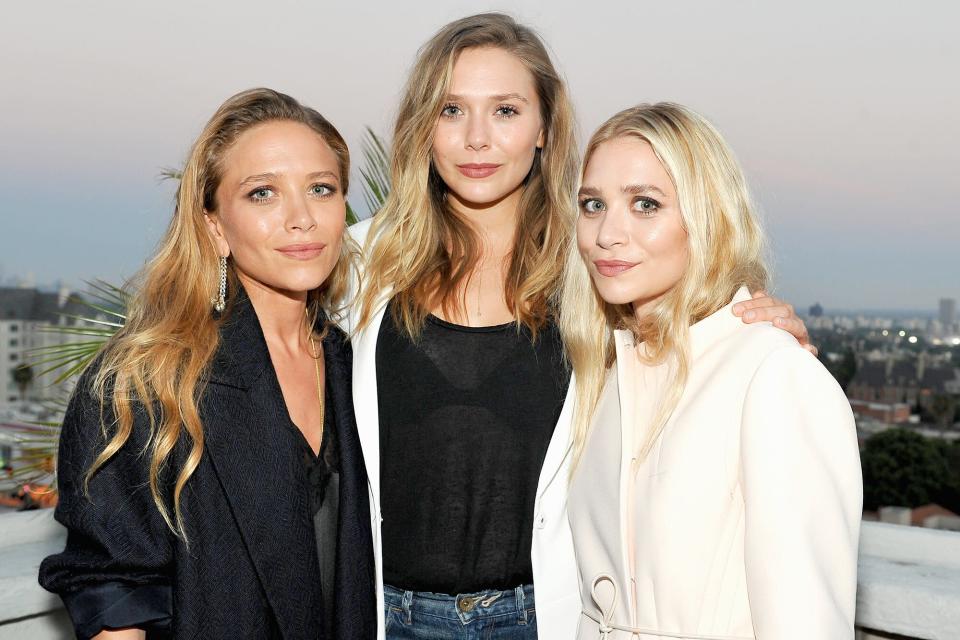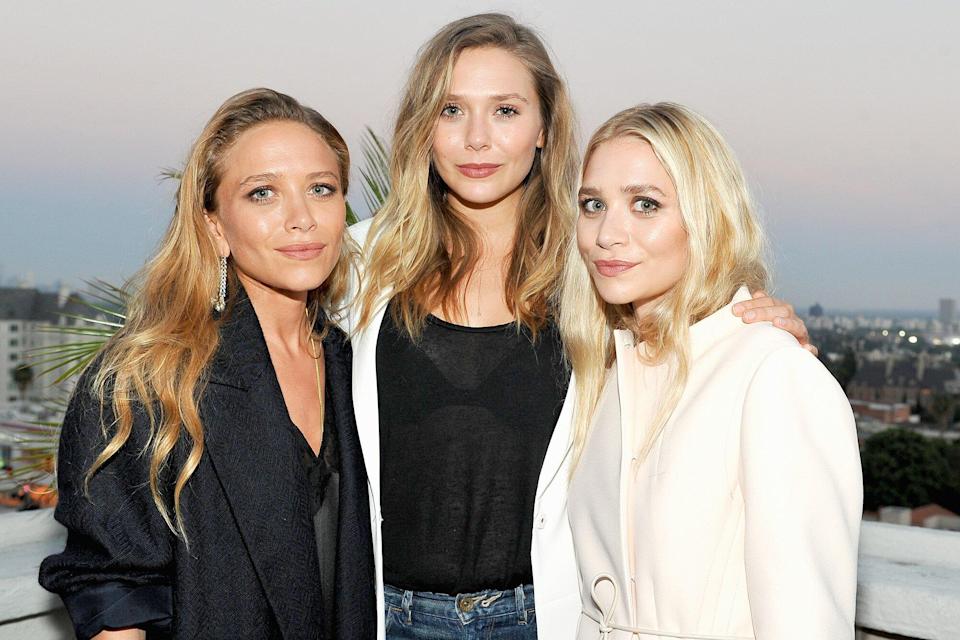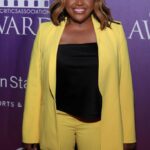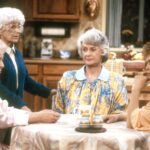When it comes to being a globally-recognized celebrity, Elizabeth Olsen had two expert role models in her older sisters, Mary-Kate and Ashley Olsen.
In a new interview with The Independent published on Saturday, the Doctor Strange in the Multiverse of Madness star opened up about the advice her sisters gave her about navigating fame, and it all boils down to one rule: “‘No’ is a full sentence.”
That’s why she doesn’t hesitate to turn down anything she doesn’t want to do, like present onstage at shows like the Emmys or Oscars. “I don’t like presenting at awards shows,” she says. “I tried, and I don’t like it. It is not worth the feeling of passing out that I get, like, every time. It’s just not worth it.”
Olsen has been outspoken in the past about her struggles with anxiety and panic attacks, which is why she looks up to her sisters so much for how they were able to handle extreme fame at such young ages. “I think my sisters are some of the most amazing people to look at, with what they’ve created for themselves and how they conduct themselves,” she says. “I’m really in awe of what they’ve built, and I do think that came from them having such a healthy perspective — and I could only benefit from that healthy perspective. I think it has informed how I conduct myself.”


Donato Sardella/Getty Images
When Olsen started her own film career, she received critical acclaim for her indie work before joining the Marvel Cinematic Universe as Wanda Maximoff in Avengers: Age of Ultron. Her fan-favorite character would eventually go on to appear in several big MCU films before getting her own Disney+ series, WandaVision. Her character’s journey, and ability to cope with grief and trauma, come to a head in the new Doctor Strange sequel (in theaters now). Despite her MCU success, Olsen admits she’s been confused by her popularity for years, especially the fan fervor surrounding WandaVision, saying she “totally dissociated” from it and is “not really attached to it emotionally.”
“I only signed on to do a couple movies, so it continues to be a surprise when they want to use me for more projects,” she says. “I’ve been confused by how lucky I got with them wanting to make WandaVision… When we were doing press for WandaVision, I was mortified because it was the first show from the Marvel universe. There was this total fear, and now I have this pressure all over again connecting to Doctor Strange. I just didn’t have it as part of those ensemble films.” She hasn’t even seen the whole movie yet, adding, “I’ll see it eventually.”
Olsen went on to defend big-budget superhero films from critics like Martin Scorsese (who said MCU films are “closer to theme parks” than real cinema) and Francis Ford Coppola (who called them “prototypes made over and over and over again to look different”), saying she gets frustrated when people “make them seem like a lesser type of art.”
“I’m not saying we’re making indie art films, but I just think it takes away from our crew, which bugs me,” she says. “These are some of the most amazing set designers, costume designers, camera operators — I feel diminishing them with that kind of criticism takes away from all the people who do award-winning films, that also work on these projects. From an actor’s point of view, whatever, I get it; I totally understand that there’s a different kind of performance that’s happening. But I do think throwing Marvel under the bus takes away from the hundreds of very talented crew people. That’s where I get a little feisty about that.”
Want more movie news? Sign up for Entertainment Weekly‘s free newsletter to get the latest trailers, celebrity interviews, film reviews, and more.
Related content:




